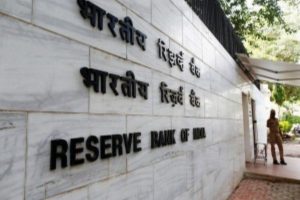Does food sensuality go well beyond its physical and cognitive function, and does the aroma of a particular dish vest in an uncanny and grisly ability to foretell what is upcoming?
The nuanced layers of this pertinent question are creatively articulated by an Avantgrade fiction writer of Urdu, Khalid Javed, in his novel Nemat Khana (The Paradise of Food), which bagged the prestigious JCB award for literature recently.
Advertisement
The novel’s protagonist, Hafeez Uddin Barbra, has a queer ability to foretell a petrifying event that may rock the universe by concentrating on the smell of a dish flowing from the kitchen.
The cookhouse, a scintillating site for sumptuous food and its foundational comforts, unravels a furtive but delicious thrilling mystery of the human psychethat seeks solace in violence, carnality, envy, desolation, and harassment. The toothy dishes pose a threat to life.
Many longed-for edibles become a melting pot of ambition, passion, pleasure, jealousy, insecurities and identity. Far from being a repository of delight and contentment, the kitchen breeds lewd-fed heinous crimes.
The author trenchantly spells out what eludes our attention, “No other portions of the house contain such dangerous double-faced entities as those found in the kitchen, and no other section of the house do women appear so out of their wits, broken and envious, so full of violent energy and small-mindedness as they do in the kitchen. The hunger of human intestines and two square meals a day conceal a mysterious and frightening erotic charge. This charge moves only towards darkness and blood. And the final outcome is vulgar and misleading covetousness.”
Food is intricately bound with life as it sustains and wreaks havoc on human existence. Khalid astutely creates scenes that expose the layers of banality and, through the prism of changing relationship with food, seeks to provide a glimpse into the inner life of the characters.
The novel sets food discourse in motion as nothing exists beyond intestines-magic, fortune-telling, occultism, love, sex, and violence crossbred here. Not as the marker of identity, cultural aspirations and external reality, Khalid employs food imagery to let the readers live with the characters’ sorrows, anxieties, promiscuity, and wickedness.
Inviting someone for a meal is not just an act of courtesy, care and sensitivity; they are essential ingredients of the dishes and it overwhelms the persons who consume them.
Food preference denotes whether we are adherent or defiant toward traditional values.
An orphaned boy Barber’s painful life-altering situation subtly resembles Midnight’s Children’s Saleem,who uses taste and smell to puzzle over the discourse of national identity in India. In the multi-fold narrative, Khalid Javed seeks to envisage subaltern anthropology by unravelling various layers of the interlacing of cultures.
The protagonist repeatedly says that the kitchen is the most dangerous place.
The fire inthe kitchen gives birth to affection, affinity, intimacy, hatred, violence and envy.Cooking is fraught with many unarticulated dangers, and kitchenware can be used as a weapon. In the kitchen, characters turn mean, violent, and jealous. Since childhood,the kitchen has been his favourite place.
As a boy, he assassinated two people in the kitchen who betrayed two girls for whom he developed an infatuation.
The preparation of a particular dish makes the narrator foretell a catastrophe as he forewarns about the demolition of the Babri Mosque and the assassination of Rajiv Gandhi.
Khalid Javed hardly attempts to dress up lurid sex fantasies as romance. One tends to agree with the prominent critic Shamsur Rehman who described him as the master of the aesthetic of disgust.
The novelist startles the readers when he says people will enjoy their alienation and separation if the kitchen is abandoned. Food conjures memories long forgotten in the ephemeral world, but the Paradise that existed in the eternal world is unacceptable, as there will be no room for memory.
If memory fades away, paradise turns into hell. Through his exhilarating narrative dexterity, Khalid Javed makes the ludicrous believable and affirms that every human action becomes a part of the food discourse. Baran Farooqui rendered it into English with remarkable ease with occasional turgidity.
Khalid Jawed does not bury the plot behind the heavy pall of magic realism technique, and his style is imbued with a new artistic coherence.











